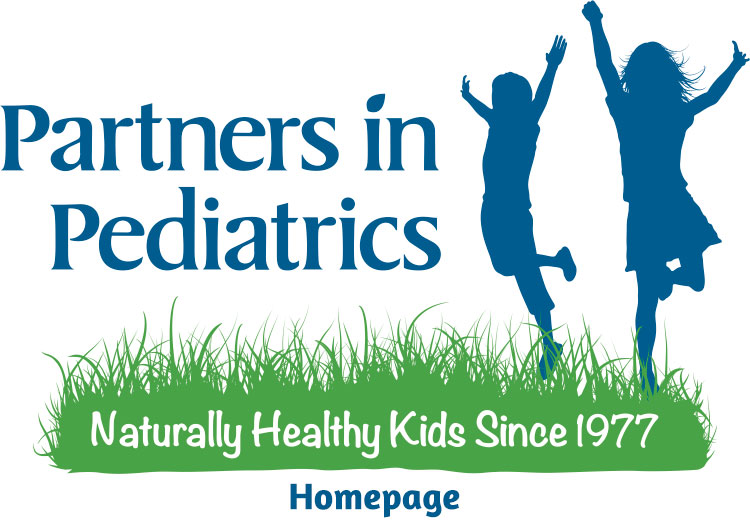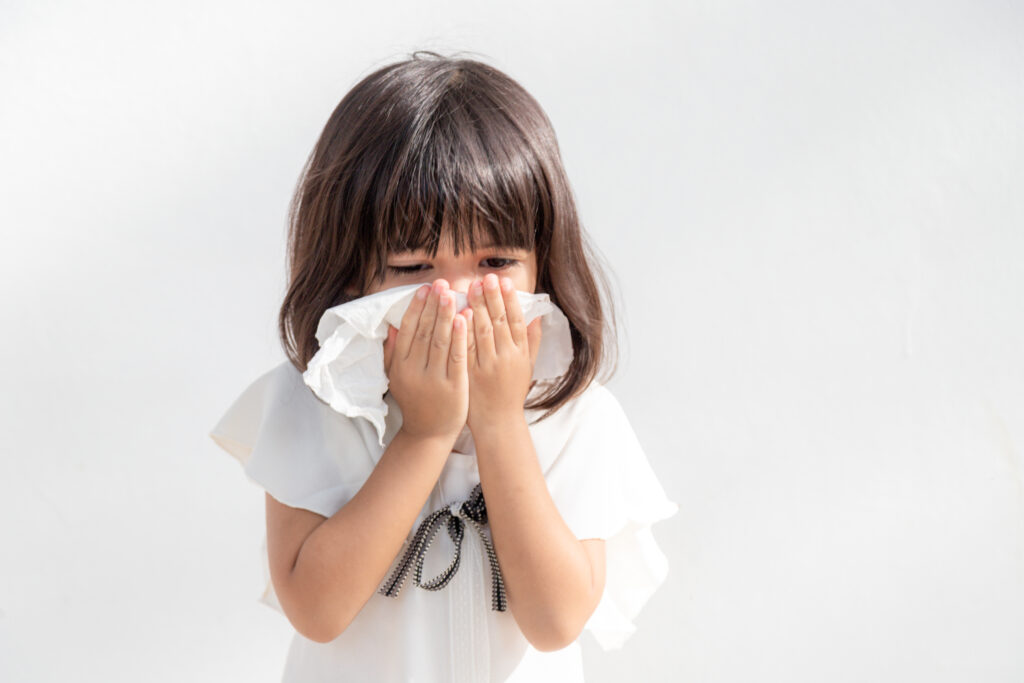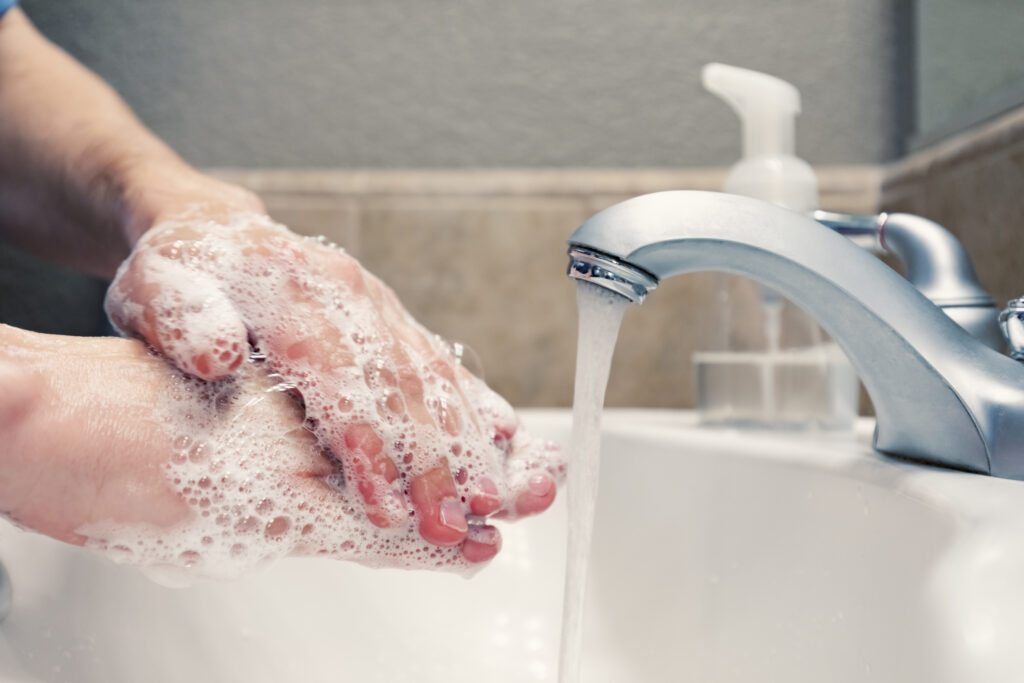Summertime is synonymous with warm weather, outdoor activities, and fun in the sun. However, it’s not uncommon for young children (and this year even older adults) to catch a cold even during warmer months. While colds are typically associated with colder seasons, the truth is that the entire family can experience cold-like symptoms throughout the year. And no one likes a summertime cold! Especially in Denver when the list of fun outdoor activities seems endless.
To help keep your family enjoying this summer with limited downtime, we’ve put together the causes, symptoms, and remedies, recommended by your integrative health care provider, for summertime colds. As your pediatrician, we want to make sure you’re prepared with valuable information to help your little ones stay healthy this time of the year.
Causes of Summertime Colds
Contrary to popular belief, colds are not caused by exposure to cold temperatures alone. Though the winter months are more common for colds and cold temperatures can weaken your immune system, cold are just as easily caught during the summer. Colds are caused by viruses – most commonly rhinoviruses and adenovirus – and during the summer, several factors can contribute to the prevalence of viruses and virus exposure for kids. Some of the common causes are listed below:
- Travel: Summer vacations and travel expose children to new environments and potential exposure to different viruses. Airplanes, amusement parks, swimming pools, hotels – these are all perfect environments for new germs your kids may not normally be exposed to throughout the year.
- Allergies: Seasonal allergies can weaken the immune system, making children more susceptible to viral infections. Runny noses and watery eyes are easy entry points for germs too, so handwashing is crucial to keep viruses at bay.
- Air conditioning: The increased use of air conditioning in homes, cars, and public places can create an environment conducive to the spread of viruses. Ensuring your home and vehicle air filters are changed regularly can help remove pathogens, mold, and bacteria from the air that can cause respiratory issues.
- Indoor and outdoor activities: Children engaging in summer camps, daycare centers, and outdoor activities can come into contact with other children who may be carriers of viruses. Just like school, germs can make the rounds at summer camp, so teaching your little one good hand-washing hygiene is important year round.
Symptoms of Summertime Colds
Recognizing the symptoms of a summertime cold is essential for early intervention and providing relief to your family. If you’re unsure whether symptoms your child may be exhibiting are due to a cold or seasonal allergies, contact your pediatric office for a consultation. It is also recommended that an at-home COVID test as cases continue to even throughout the summer months. Common cold symptoms may include:
- Runny or stuffy nose: One of the most common symptoms, a runny or stuffy nose can cause discomfort and difficulty in breathing for young children.
- Sneezing and coughing: Children may experience frequent sneezing and coughing, leading to further nasal congestion and irritation. Typically, these symptoms mean there is an allergen of some sort irritating the nasal cavity, so proper diagnosis of the cause is important.
- Sore throat: A sore throat may accompany a summertime cold, causing discomfort and difficulty in swallowing. If your child is not as eager to eat or drink, this could be an easy sign of a sore throat.
- Mild fever: Some children may develop a mild fever as the body’s immune system fights off the viral infection.
- Fatigue and irritability: Summertime colds can make children feel tired and irritable, impacting their overall mood and behavior. If your little one is napping a little longer or is extra grouchy, this could be a signal that they’re not feeling their best.
- Headache and body aches: Older children may experience mild headaches and body aches during a cold.
Remedies
While there is no cure for the common cold, several remedies can help alleviate symptoms and make your kiddos more comfortable. It’s important to consult an integrative pediatric provider for guidance and to rule out any underlying conditions. Here are some effective remedies for summertime colds:
- Hydration: Encourage your child to drink plenty of fluids like water, diluted fruit juices, and warm soups to stay hydrated and help alleviate congestion.
- Rest: Ensure your child gets ample rest and sleep, as it aids in the body’s healing process. This may be tough during those sunny Denver days, but creating a relaxing space that is cool and dark can help aid your kids to sleep better.
- Saline nasal drops: Saline nasal drops or sprays can help relieve nasal congestion by loosening mucus and facilitating easier breathing. Consult your pediatrician for specific recommendations and usage.
- Humidifier: Use a cool-mist humidifier in your child’s room to add moisture to the air, reducing nasal congestion and soothing sore throats.
- Warm liquids: Offer warm liquids like herbal tea or warm water with a dash of lemon and honey to soothe sore throats and ease coughing. This is also an easy way to help your little one stay hydrated. Note: Honey should NEVER be given to children less than 1 year of age. Agave syrup is a safe alternative.
- Over-the-counter medications: Consult with your healthcare provider before using any over-the-counter medications, as they may not be suitable for young children. Fever reducers such as Tylenol or pain relievers such as ibuprofen can be used per medication guidelines or with doctor’s consultation. For dosage guidelines, reference the Partners in Pediatrics handbook “Naturally Healthy Kids“.
- Essential Oils: Some essential oils, such as eucalyptus and lavender, have antimicrobial properties and can be used in a diffuser or added to a carrier oil for chest rubs. Consult your doctor to ensure proper use.
- Vitamin C and Zinc: These supplements can help shorten the duration of a cold and support the immune system. However, consult an integrative pediatrician before giving any supplements to children.
- Cherry bark and Horehound Blend: these supplements can aid in different types of coughs. Cherry bark for dry coughs and Horehound for congested coughs.
Prevention
Hand washing is one of the best ways to protect yourself and your family from getting sick year-round. Below we’ve broken down when and how you should wash your hands to keep you and your family healthy.
How Germs Spread
Washing hands can keep you and your family healthy and prevent the spread of respiratory and viral infections. Germs can spread from person to person or from surfaces to people when you:
- Touch your eyes, nose, and mouth with unwashed hands
- Prepare or eat food and drinks with unwashed hands
- Touch surfaces or objects that have germs on them
- Blow your nose, cough, or sneeze into hands and then touch other people’s hands or common objects
Key Times to Wash Hands
You can help yourself and your loved ones stay healthy by washing your hands often, especially during these key times when you are likely to get and spread germs:
- Before, during, and after preparing food or eating food
- Before and after treating a cut or wound – there are lots of those during the summer!
- After using the restroom or changing a little one’s diaper
- After blowing your nose, coughing, or sneezing – those pesky allergies!
- After touching an animal, animal feed, or animal waste – especially important at the zoo.
- After handling pet food or pet treats
- After touching garbage
Five Steps to Wash Your Hands the Right Way
Washing your hands is easy, and it’s one of the most important things you can teach your kids to prevent the spread of germs. Clean hands can help stop germs from spreading from one person to another – even during the summer!
Follow these five steps every time.
- Wet your hands with clean, running water (preferably warm) and apply soap.
- Lather your hands by rubbing them together with the soap. Make sure you lather the backs of your hands, between fingers, and under nails.
- Scrub for at least 20 seconds. Need a timer? Hum the “Happy Birthday” song from beginning to end twice.
- Rinse hands well under clean, running water.
- Dry your hands using a clean towel or an air dryer.
Washing hands with soap and water is the best way to get rid of germs in most situations. If soap and water are not readily available, you can use an alcohol-based hand sanitizer that contains at least 60% alcohol. You can tell if the sanitizer contains at least 60% alcohol by looking at the product label.
With proper handwashing and a little luck, your family should be able to enjoy the summer with limited downtime due to pesky summer colds. As always, if you or your loved ones experience any cold-like symptoms, feel free to contact Partners in Pediatrics to get the best information on holistic or traditional remedies and prevention.
At Partners in Pediatrics, we are holistic pediatricians committed to educating the mile high city with functional wellness / health care topics. We are dedicated to providing your family with exceptional pediatric care using a holistic approach – combining conventional medicine, holistic treatments, and alternative remedies.
Please get in touch with us with any questions about colds any time of year. If you’re in need of more comprehensive advice, please contact our team serving the Denver metro area, Littleton, City Park, Cherry Creek, and the surrounding areas of Colorado.







Leave a Reply